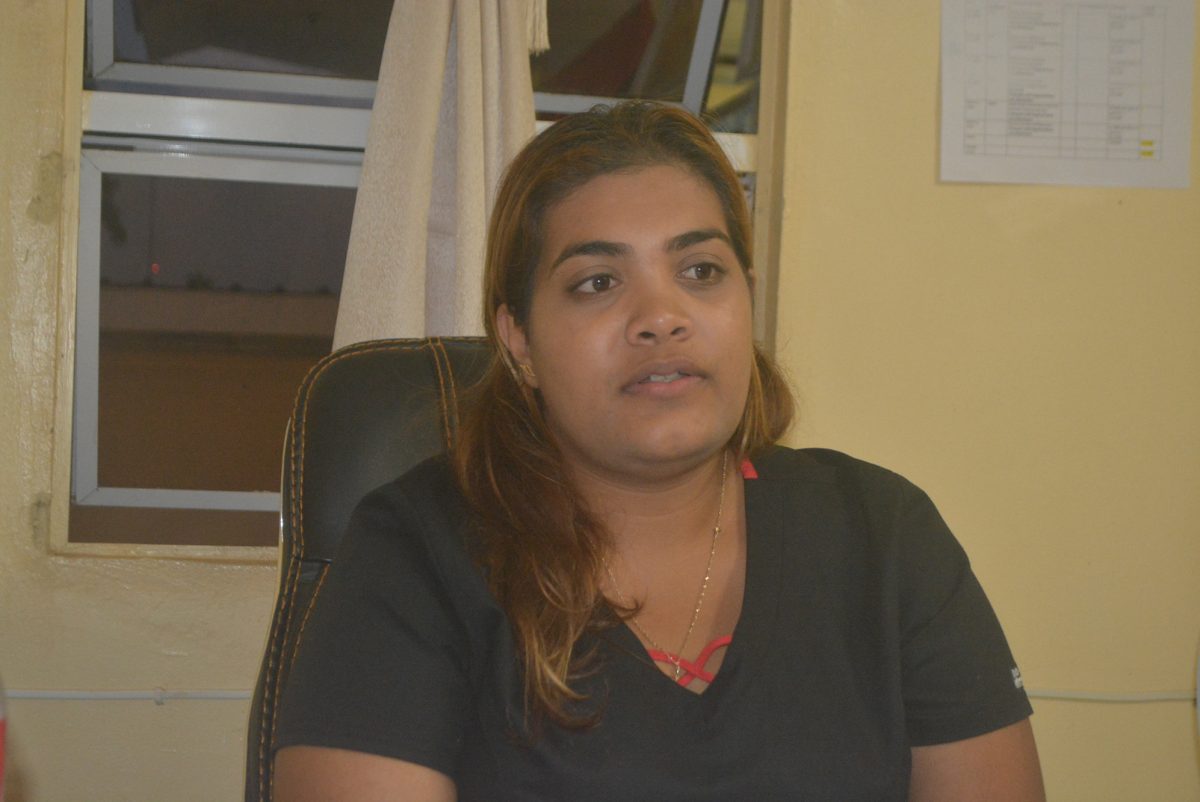The Region One Health Officer (RHO), Dr Latchmie Lall has disclosed that the Region has recorded a significant increase in teenage pregnancy.
According to a Region One press release, the RHO indicated that from January to November this year there were 259 teenage pregnancies with the youngest being 12 years old. This, she said, was from a population size of approximately 850 persons and that the number will increase as already there are more pregnancies for December. The final tally for December will be known in early January.
In contrast, from January to December 2018 there were 152 recorded pregnancies, Dr Lall added.
However, the RHO was quick to point out that this number is also fuelled by migrants to the Region and that the regional hospitals continue to see a very large influx of migrants who have been accessing health services. “We have seen a very large influx of migrants and daily we are seeing many patients at our hospitals. More and more diagnoses are being made with some of those infections being transferred back into the city,” she said.
Dr Lall also disclosed that the region’s Maternal and Child Health programme has resulted in more women reaching out to have family planning done and emphasised that this has resulted in a high number of implants being placed in women as they seek family planning approaches.
“This I must say is mainly from the migrants while all the migrants are being vaccinated so we have had to increase our vaccination programme as it has been very active as it seeks to cater for all the migrants. It doesn’t only cover outlying areas but riverain areas too that are seeing migrants,” Dr Lall stressed.
The RHO pointed out that because of the very large number of migrants who have taken up residence in Guyana, they have been forced to increase their TB programme, placing it under immense strain. She said that they are facing grave challenges in this area, as they are diagnosing migrants with TB. She noted that while they are managing to stabilise them, they are a moving population.
“The grave challenge that we are seeking to address is that while we are able to stabilize them with the TB they are a population that is moving back and forth and when they go they go for three to four months and this results in them not being able to follow up, thus placing undue pressure on the DOTS (Directly Observed Treatment, Short-course) workers. It simply means that back here we are now forced to start that process again,” the RHO admitted.
Another challenge, she stated, is the nutritional issue which is not being addressed. This continues to place a significant burden on the region’s drugs and medical supplies, noting that no person can be turned away from any medical institution seeking attention.
She made reference to the formation of a CAC Unit, which was established earlier through the assistance of UNICEF and that her department remains indebted to some training that UNICEF provided, thus further ensuring that they can address some of the concerns. “We did have a WASH training, which is Water, Sanitation, and Health training, we have also had outreaches to several of these areas like Yarakita and White Water. We have also had help from GWI who constructed some sanitary blocks for the migrant population and the …vaccines are being provided under the Maternal and Child Health immunization programme,” she explained.
The RHO noted further that the department is now seeking to create a number of data bases with various types of information on the migrant population being recorded separately, thus allowing them to know exactly the numbers of migrants accessing health care and other health related services. She said that there are currently 900 vaccinated and documented migrants in Region One, however there are a number who have not been vaccinated and documented.
Regarding schooling for migrant children, Dr Lall said that like health no child will be denied access to education and confirmed that while some residents had expressed concerns about the migrants being in the same schools with their children and that a special school to cater for migrants should be constructed, several migrants have been successfully incorporated into the school system. “Like health, education is not allowed to turn away any child, so the same is being applied for education as no one can be denied access to education irrespective of migrant or not. What I know for a fact in health is that if a patient comes to our facilities and is need of service, we cannot turn away that patient,” the RHO was quoted as saying.






